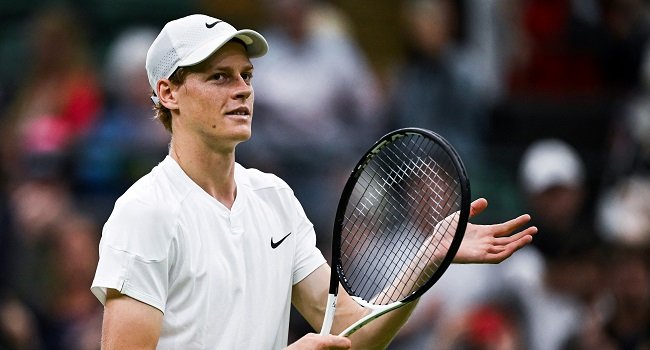Tennis world number one Jannik Sinner has agreed to a three-month suspension after admitting that team-related errors led to his positive doping tests in March last year. The decision, which keeps him out of competition from February 9 to May 4, allows the Australian Open champion to make a comeback just in time for the prestigious French Open at Roland Garros, starting May 25.
Sinner, widely regarded as one of the most disciplined and talented players of his generation, tested positive twice for traces of clostebol, a banned substance. However, the World Anti-Doping Agency (WADA) ruled that the 22-year-old Italian neither intended to cheat nor gained a competitive edge from the incident. The source of contamination, according to Sinner, was a medical spray used by his physiotherapist to treat a cut, followed by massage and sports therapy.
The young star expressed relief over resolving the case, stating that the prolonged uncertainty had weighed on him for almost a year. “This case had been hanging over me now for nearly a year, and the process still had a long time to run, with a decision maybe only at the end of the year,” Sinner said. “I have always accepted that I am responsible for my team and realize WADA’s strict rules are an important protection for the sport I love. On that basis, I have accepted WADA’s offer to resolve these proceedings on the basis of a three-month sanction.”
The agreement between Sinner and WADA prevents the scandal from stretching into a prolonged legal battle, avoiding potential disruptions to his career. While WADA reaffirmed that Sinner did not intentionally violate doping regulations, the governing body maintained that he remains accountable for his entourage’s actions.
Despite the suspension, Sinner will have a prime opportunity to regain form and confidence ahead of the clay-court season. His return coincides with the prestigious Rome Open, where he will compete in front of his home fans before heading to Roland Garros. This strategic comeback could be crucial for his momentum as he seeks his first French Open title.
The news has sent shockwaves through the tennis community, with many players, fans, and analysts debating the severity of the ban and the broader implications of strict anti-doping regulations. Sinner’s case serves as a reminder that even unintentional doping violations can lead to career-impacting consequences, underscoring the importance of vigilance among athletes and their support teams.
As the tennis season moves forward, Sinner’s suspension raises critical questions about the responsibilities of sports professionals in maintaining strict compliance with anti-doping policies. His return to the court will be closely watched as he aims to prove that his success has always been built on talent, hard work, and integrity.
Stay ahead with the latest news on global innovation, leadership, entrepreneurship, business, and tech. Join us on WhatsApp or Telegram for real-time updates. Have a report or article? Send it to report@theinnovationtimes.com. Follow us on X (Twitter), Instagram, LinkedIn, YouTube, Pinterest, and Facebook for more insights and trends.



